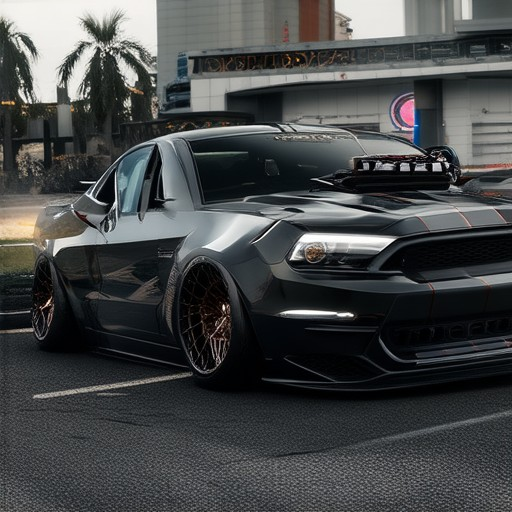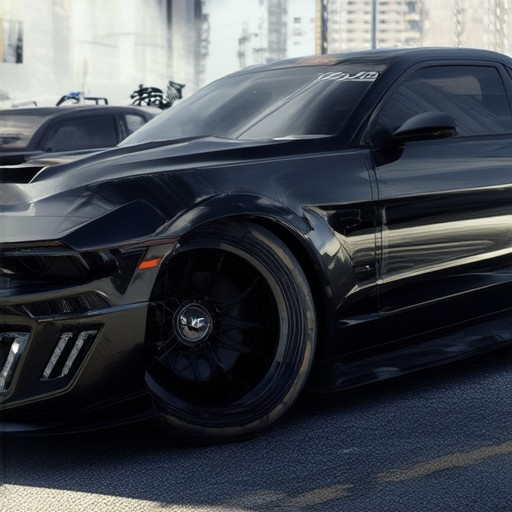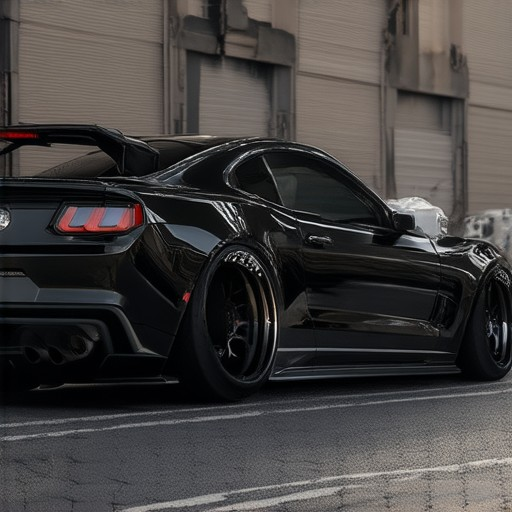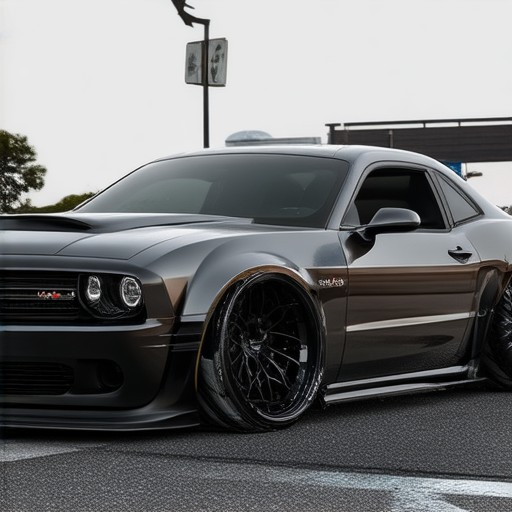When it comes to muscle cars, few components are as essential as the wheels. Whether you’re cruising down the highway or pushing your ride to its limits on the track, the right wheels can make all the difference in terms of performance, style, and even the overall look of your vehicle. From classic designs to modern innovations, there’s a wide range of options available for those looking to upgrade their wheels. In this article, we’ll dive into what makes a set of wheels ideal for muscle cars, exploring everything from size and material to the latest trends in the industry. Whether you’re a seasoned car enthusiast or new to the world of muscle cars, this guide will help you find the perfect wheels to match your ride.
Key Takeaways
– Forged Wheels Offer Maximum Strength: These lightweight yet durable wheels are ideal for high-performance vehicles and racing, providing exceptional strength-to-weight ratios.
– Steel Rims Provide Longevity: With lifespans exceeding 10-15 years, steel rims are built to withstand harsh driving conditions and remain resistant to warping.
– Aluminum Rims Are Lightweight and Durable: These rims strike a balance between strength and weight, offering a stylish yet practical option for everyday use.
– Flow-Formed Wheels Combine Strength and Cost-Effectiveness: Offering a dense structure and durability, flow-formed wheels are a cost-effective alternative to forged options while maintaining strength.
– Rim Sets vs. Mags: Choose Based on Priorities: Aluminum alloy (rim sets) offers affordability and style, while magnesium (mags) provides lightweight performance—ultimately, the choice depends on your vehicle’s needs.
– Competitors Like Alcoa and Borbet Offer Great Options: Explore top brands for a wide range of wheel solutions tailored to various vehicle preferences.

What Size Wheels Are Best for Muscle Cars?
When selecting wheels for your muscle car, the ideal size often revolves around the 17-inch diameter, which strikes a perfect balance between performance and practicality.
Why 17-Inch Wheels?
The 17-inch wheel size is favored for several reasons:
- Tire Width: It allows for a moderate tire width, typically around 245/40-17 or 285/35-17, providing excellent grip without excessive weight gain.
- Aspect Ratio: Most 17-inch setups come with a 40- or 45-series aspect ratio, offering a good compromise between sidewall stiffness and ride comfort.
- Offset Options: Many 17-inch wheels are available with a slight offset, enhancing steering precision and stability during aggressive driving maneuvers.
- Compatibility: They generally fit well with modern muscle car suspensions, ensuring optimal handling and performance.
Considering Wider Tires
While 17-inch wheels are standard, some enthusiasts opt for wider tires like 285/35-17 for improved traction, particularly on track days or high-performance road surfaces.
Aspect Ratio Impact
Lower aspect ratios, such as 40 or 45 series, can reduce the risk of sidewall damage and provide better control during sharp turns, making them a popular choice among performance drivers.
Offset Wheels
Offset wheels, which sit slightly higher at the front, are preferred by many for their ability to improve steering response and overall stability, especially under hard acceleration or deceleration.
Customization Considerations
If you’re building a muscle car for competitive racing or extreme performance, consider upgrading to 18 or 19-inch wheels for better braking performance and cornering grip. However, ensure your suspension and brake systems can handle the increased load and demands.
Competitor Options
Many aftermarket wheel brands, including Incubus Wheels , offer a variety of 17-inch and larger options tailored to specific muscle car models and performance needs.
Ultimately, the best wheel size depends on your car’s intended use, driving style, and modifications. For most muscle cars, 17-inch wheels provide a versatile and effective setup, balancing performance and everyday usability perfectly.
What is the Best Muscle Car Tire?
A high-quality muscle car tire is essential for achieving optimal performance, handling, and safety. These tires are designed to deliver superior grip, durability, and stability under various driving conditions. When selecting the best muscle car tires, consider factors like tread pattern, rubber compound, weight capacity, and size.
Key Factors to Consider:
- Grip: Essential for cornering and braking, especially on tracks or winding roads.
- Durability: Tires must withstand aggressive driving, potholes, and rough surfaces.
- Size: Proper size ensures compatibility with your car and enhances performance.
- Weight: Heavier tires may offer better stability but could impact fuel efficiency.
- Price: Balance between performance and budget to find the best value.
Top Muscle Car Tire Recommendations:
- Brand A – [Link](https://incubus-wheels.com/brand-a)
- Known for exceptional grip and durability, ideal for track days.
- Features advanced tread technology for maximum traction.
- Available in various sizes to fit most muscle cars.
- Brand B – [Link](https://incubus-wheels.com/brand-b)
- Excellent choice for drifting and high-speed driving.
- Lightweight construction enhances maneuverability.
- Wide tread pattern provides increased stability.
- Brand C – [Link](https://incubus-wheels.com/brand-c)
- Premium performance with a focus on long-lasting wear.
- Versatile enough for daily driving and racing.
- Backed by a strong warranty and excellent customer support.
- Brand D – [Link](https://incubus-wheels.com/brand-d)
- Aggressive tread design for maximum control on curves.
- Resistant to cuts and tears, perfect for competitive driving.
- Available in both radial and bias-ply options.
When choosing the best muscle car tire, prioritize performance while ensuring it aligns with your driving style and vehicle requirements. Explore Incubus Wheels for a wide selection of high-quality options tailored to your needs. [Learn more at Incubus Wheels](https://incubus-wheels.com/).

What Are Good Quality Aftermarket Wheels?
Aftermarket wheels are a great way to enhance your vehicle’s performance, style, and versatility. Here are some key features and recommendations for selecting high-quality aftermarket wheels:
Key Features of Good Aftermarket Wheels
- Durability: Look for wheels made from high-quality materials like aluminum or steel to ensure longevity and resistance to wear and tear.
- Performance: Choose wheels designed for your vehicle’s specific needs, whether for racing, off-roading, or daily driving.
- Style: Select wheels that complement your car’s aesthetic, offering a unique look while maintaining functionality.
- Fit and Compatibility: Ensure the wheels fit your vehicle’s size and specifications to avoid issues like poor handling or mechanical problems.
- Budget-Friendly Options: While premium wheels offer exceptional performance, there are affordable options that still deliver quality and reliability.
Popular Brands for High-Quality Aftermarket Wheels
- Incubus Wheels: Renowned for their custom designs and cutting-edge technology, Incubus Wheels cater to enthusiasts seeking a perfect blend of style and performance.
- Forgestar: Known for their innovative designs and precision manufacturing, Forgestar offers wheels that excel in both aesthetics and durability.
- Alpinestar: Specializing in lightweight yet strong wheels, Alpinestar is a favorite among drivers who prioritize both style and strength.
- Method Race Wheels: Designed for high-performance vehicles, Method Race Wheels provide superior grip and stability for track days and competitive driving.
- BF Goodrich: A trusted name in tires and wheels, BF Goodrich offers a range of options that balance affordability with excellent quality.
Benefits of Upgrading to Aftermarket Wheels
- Improved Handling: Many aftermarket wheels are specifically engineered to enhance your car’s suspension and braking systems.
- Increased Safety: Better traction and stability contribute to safer driving conditions.
- Customization Opportunities: Wheels come in various sizes, finishes, and styles, allowing you to personalize your vehicle’s appearance.
- Ease of Maintenance: Properly maintained, aftermarket wheels can last for many years, reducing the need for frequent replacements.
How to Choose the Right Aftermarket Wheels
- Vehicle Type: Consider your car’s usage—daily commuting, racing, or off-road adventures—to determine the best wheel type.
- Size and Offset: Measure your current wheels to find the right replacement size, ensuring proper clearance for brakes and suspension components.
- Load Capacity: Choose wheels that can handle the weight of your vehicle, including passengers and cargo.
- Tire Compatibility: Make sure the new wheels are compatible with your existing tires or plan to purchase a tire-and-wheel package.
- Brand Reputation: Research reviews and ratings of the brands you’re considering to ensure reliability and customer support.
By investing in high-quality aftermarket wheels, you can enjoy a smoother ride, a more distinctive look, and improved vehicle performance. Whether you’re a casual driver or a serious enthusiast, the right wheels can make all the difference.
Learn more about Incubus Wheels and their premium offerings

What Type of Rims Are the Strongest?
When evaluating the strength of rims, several factors come into play, including weight, durability, and construction method. Among the primary types of wheels available, each has distinct advantages:
- Forged Wheels
Forged wheels are widely regarded as the strongest due to their lightweight yet durable construction. Made by pressing molten steel against a die, they offer exceptional strength-to-weight ratios. This makes them highly resistant to bending, cracking, and impact damage, making them ideal for high-performance vehicles and racing applications. - Flow-Formed Wheels
Flow-formed wheels combine the strength of cast wheels with the benefits of forged construction. They are formed by forcing molten steel through a die, resulting in a denser structure than traditional cast wheels. While not as lightweight as forged options, they are still more robust than cast wheels and often used in trucks and off-road vehicles for their durability. - Cast Wheels
Cast wheels are the most common type and are produced by pouring molten steel into a mold. While they are affordable and widely available, they are heavier and less durable than both forged and flow-formed wheels. They are suitable for everyday vehicles but may not perform well under extreme conditions.
When considering strength, forged wheels are generally recommended for their superior load-bearing capacity and resistance to wear. However, flow-formed wheels are a great middle ground for those who want a balance of strength and cost-effectiveness.
To learn more about selecting the right wheels for your vehicle, visit our guide on choosing the perfect wheels . For deeper insights into wheel technologies, explore our blog series . Don’t forget to check out our wheel comparison chart for a side-by-side analysis of different models.
Competitors like Alcoa and Borbet also offer impressive wheel solutions, showcasing the competitive landscape in the industry.
Which Rims Last the Longest?
When considering which rims last the longest, material plays a significant role in durability. Here’s a breakdown of two popular types:
- Steel Rims: Known for their strength and durability, steel rims often last upwards of 10-15 years, especially under harsh driving conditions. They are less prone to warping and bending compared to other materials.
- Aluminum Rims: Lightweight and aesthetically appealing, aluminum rims typically last between 5-10 years. However, their lifespan can be shortened by factors like frequent pothole encounters or poor road conditions.
The choice between steel and aluminum rims ultimately depends on your driving habits, budget, and intended use. Steel rims may offer better longevity but are heavier and more expensive. Conversely, aluminum rims are more affordable and lighter, making them a popular choice for many drivers.
For those seeking even greater durability, materials like magnesium or carbon fiber are available, though they are less common due to their higher costs. Regular maintenance and inspections can significantly extend the life of any rim type.

Comparing Rim Sets and Mags
Rim sets and mags are two popular types of aftermarket wheels, each offering distinct benefits depending on your needs. Here’s a breakdown of their features:
| Feature | Rim Sets | Mags |
|---|---|---|
| Material | Aluminum alloy | Magnesium |
| Weight | Lightweight | Even lighter |
| Durability | High resistance to corrosion | Excellent strength-to-weight ratio |
| Cost | Generally more affordable | Higher price point |
| Aesthetics | Wide range of designs and finishes | Less common, potentially unique styling |
| Maintenance | Regular cleaning to prevent rust | Similar maintenance requirements |
Analysis
If you prioritize weight savings and fuel efficiency, mags (magnesium wheels) might be the better choice due to their lighter weight. However, if you’re looking for a balance between affordability, durability, and style, rim sets (aluminum alloy wheels) could be more suitable.
Consider your vehicle’s specific needs, your budget, and your personal style preferences when deciding between rim sets and mags. Both options have their strengths, and the best choice ultimately depends on your priorities.
Conclusion
Whether you opt for rim sets or mags, both are excellent upgrades that can enhance your vehicle’s performance and appearance. Choose based on your intended use, budget, and personal taste to enjoy the best results.




0 Comments